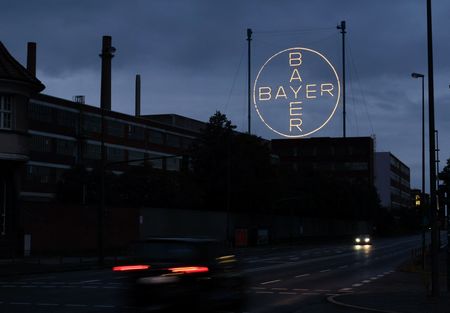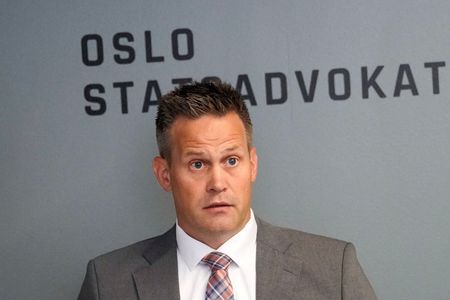(Reuters) -Bayer said on Monday it reached agreements in principle with more than 200 plaintiffs to resolve the so-called Sky Valley Education Center product liability cases related to the chemical PCB, but said payments were already reflected in recent financial reporting.
Bayer said in its statement that the terms of the agreements of its Monsanto unit over environmental pollution with PCB, short for polychlorinated biphenyls, were confidential and subject to approval of final settlement agreements by the parties.
The cost of the additional settlements was covered by the PCB litigation provision taken in the second quarter, it added.
Bayer shares extended gains after the news and were up 2.7% by 1305 GMT, reaching a two-week high.
Previous adverse verdicts in the litigation linked to the Sky Valley Education Center near Seattle were not covered by the deal and remain on appeal, Bayer added.
A jury in the state of Washington in January ordered Bayer to pay $100 million to four people who said they contracted various health problems from PCB at the school, but found the company was not liable for injuries alleged by 11 others.
Plaintiffs have said their health problems were due to PCBs leaking from the school’s light fixtures. The chemicals were made by Monsanto, which Bayer acquired in 2018 for $63 billion.
Since that acquisition, lawsuits over PCBs, and more significantly over claims that the weedkiller Roundup caused cancer, have weighed heavily on the company’s shares.
PCBs were once used widely to insulate electrical equipment, and were also used in such products as carbonless copy paper, caulking, floor finish and paint. They were outlawed by the U.S. government in 1979 after being linked to cancer and other health problems. Monsanto produced PCBs from 1935 to 1977.
Bayer said in July it had set aside an additional 1.7 billion euros ($2 billion) in provisions and liabilities for U.S. litigation, about 1.2 billion euros of which were related to Roundup.
($1 = 0.8568 euros)
(Reporting by Ludwig Burger; Editing by Rachel More and Emelia Sithole-Matarise)











